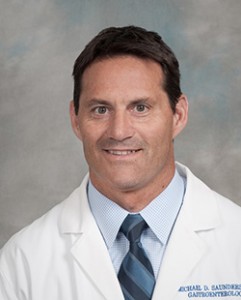 SNI: Is Carb Loading an effective means of enhancing performance in endurance events?
SNI: Is Carb Loading an effective means of enhancing performance in endurance events?
Dr Saunders: When done effectively, carbohydrate loading can aid performance by allowing athletes to perform longer before muscle glycogen stores are depleted – known as ‘hitting the wall’ or ‘bonking’. However, some individuals experience fullness in their legs that can make them feel sluggish, so athletes should experiment with their protocol prior to race day. In addition, this strategy is only likely to improve performance when the pace/duration of the event can lead to considerable glycogen depletion (i.e. ~2+ hours at maximal pace). So, the carbohydrate gluttony you often observe prior to 5-10km runs is not an effective strategy.
SNI: Briefly describe how the addition of protein to a sports drink can enhance performance and/or recovery.
Dr Saunders: Some studies (including those from our lab at James Madison University) have shown that carbohydrate+protein beverages enhance endurance performance compared to beverages containing only carbohydrate. However, other studies have suggested that protein does not augment performance beyond levels that can be attained with high carbohydrate doses – so this remains controversial. There is stronger evidence regarding the benefits of protein for recovery. Numerous studies have shown that carbohydrate/protein intake can positively influence markers of recovery following heavy endurance exercise – including protein balance, markers of muscle damage, soreness, and performance in subsequent exercise.
SNI: What supplements would benefit endurance athletes?
Dr Saunders: Numerous supplements show potential promise, but there are surprisingly few that have strong evidence demonstrating consistently positive effects. For athletes in long-duration events (90 min or longer), there is clear evidence that sports drinks (including water, electrolytes, carbohydrate and sometimes protein) can be ergogenic. Caffeine has also been shown to enhance performance in events ranging from short- to long-distances. In the shorter events (i.e. 800m running, or other events of a few minutes or less), supplements that buffer lactate (such as sodium bicarbonate) have also been shown to be effective. As mentioned above, I also suggest that athletes consume carbohydrate/protein after heavy training sessions to promote recovery.
SNI: What are the top 3 myths that you often hear regarding sports nutrition?
Dr Saunders: 1) “Eat like an athlete”. Many sports nutrition recommendations assume heavy daily training demands, so you should only do this if you also train like an athlete. For example, if your training consists of jogging a couple of miles on a treadmill each day, water will do just fine.
2) Protein is only for muscle building. Until relatively recently, protein’s importance was largely ignored by endurance athletes.
3) Low-intensity exercise promotes more fat-burning. Though partially true (a higher % of energy expended during low intensity exercise comes from fat), low-intensity exercise expends fewer calories per hour. So, exercising slowly to promote fat-burning is unlikely to result in greater fat/weight loss, unless you are willing to exercise for much longer amounts of time.
SNI: What pre-race nutrition or supplement strategies would you recommend for a runner about to run a half marathon?
Dr Saunders: 1. Eat familiar foods. The time for experimentation is over – be sure you can tolerate the types and amounts of food/supplements you consume.
2. Consume adequate (but not excessive) carbohydrate and fluids in the days leading up to the event.
3. Eat a small, carbohydrate-rich, palatable breakfast the morning of the event. Allow adequate time for digestion (usually 2-4 hours) to avoid gastrointestinal problems.
4. Consume tolerable amounts of fluid and carbohydrate (and potentially protein) at regular intervals throughout the race. During running, it may be easiest to get nutrients from energy gels, which are highly portable. Fluid becomes more important on hot days.
5. If you respond well to caffeine, use a caffeinated beverage (or gels) 1 hour before the race, and during the event.
Mike Saunders, Ph.D. is a Professor in the Department of Kinesiology at James Madison University. He received B.S. and M.A. degrees from East Tennessee State University. He obtained a Ph.D. in Exercise Physiology from the University of Georgia in 1998. He joined the faculty of James Madison University in 1998, and has been the Director of JMU’s Human Performance Laboratory since 2003. In recent years, Dr. Saunders’ research has focused on the role of various nutritional interventions to promote improved performance and recovery in endurance athletes. The effects of carbohydrate and protein co-ingestion during and following endurance exercise have been a primary research interest. Dr. Saunders is a Fellow of the American College of Sports Medicine and a recipient of the Madison Scholar award from JMU.



